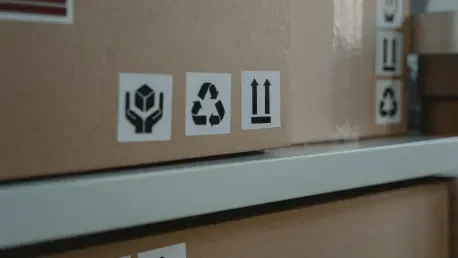In the field of energy management and risk, few people bring as much experience to the table as Christopher Hailstone. With his extensive background in renewable energy and utilities, Christopher provides crucial insights into the intricacies of grid reliability and security. Today, though, we delve into the world of cargo theft—an area requiring precise risk management strategies that echo the complexities faced in his own field. As cargo theft becomes more sophisticated, businesses must adapt to stay ahead of it.
Can you explain why cargo theft has become more strategic and sophisticated in recent years?
Cargo theft has certainly evolved, transforming from opportunistic thefts into more calculated operations. Thieves now employ advanced methods like social engineering and fraudulent identities, allowing them to infiltrate legitimate logistics chains. They’ve become aware of the weak points in the supply chain and leverage technology and information sharing to increase their success rates. This sophistication means that cargo theft is no longer just an isolated local issue but a complex, coordinated activity impacting the global market.
What are the common tactics thieves use in cargo theft?
A frequently employed tactic is the use of fraudulent pickups where someone impersonates a legitimate broker to hire a driver who is in on the scam. This driver is then directed to a location where the load is covertly transferred. Phishing and social engineering also play significant roles, as thieves manipulate people into divulging sensitive transport information to facilitate the heist.
How has law enforcement’s ability to investigate cargo theft been affected by factors like funding cuts?
Funding cuts have certainly made it challenging for law enforcement to effectively tackle cargo theft. Specialized units that once focused on these specific crimes are now fewer, which means resources are stretched thin. This lack of focus has allowed thieves to explore these loopholes further, making it imperative for companies to adopt self-reliant, enhanced security practices internally.
Are there any particular states or regions more prone to cargo theft, and if so, why?
Specific states like Texas, California, and Illinois consistently report higher instances of cargo theft. Texas, for instance, is vulnerable due to its proximity to the border, where stolen goods can be moved out of the country quickly. Regions with significant manufacturing or scrap processing industries are also targeted, as they naturally have more goods in transit, making lucrative targets for theft.
What has been the impact of the pandemic on the nature of cargo theft?
The pandemic drastically shifted the landscape, pushing cargo theft from unsophisticated regional thefts to organized, international operations. As global demand for materials surged, criminals adapted by forming networks that can efficiently sell stolen goods on the international market, sometimes at full market value due to high demand. This change underscores the importance of heightened awareness and precautionary measures.
Why do you believe that cargo theft incidents are underreported?
One reason might be the barriers in the reporting process; businesses may find them cumbersome or fear increased insurance premiums. There’s also the possibility of mistrust in whether reporting will yield tangible results. Realistically, the underreporting coupled with proactive theft strategies implies that actual cargo theft figures could be significantly higher than what current statistics suggest.
What advice would you give to metal recyclers to protect their shipments from theft?
Metal recyclers should consider using GPS trackers for their shipments, providing real-time updates on their location. Additionally, capturing images of drivers and vehicles can aid significantly in investigations, as photos help connect stolen loads to similar crimes. These images can be cross-referenced across case files, speeding up the identification and prosecution processes.
How can recycling companies enhance their security without incurring high costs?
Simple yet effective measures include installing security cameras and thoroughly documenting all driver and vehicle details. Routine checks to ensure that no company branding changes or ‘ghost writing’ occur on vehicles can prevent fraudulent activities. These low-cost strategies contribute significantly to mitigating risks.
What’s the significance of obtaining the driver’s phone number in preventing theft?
Having direct contact with the driver allows immediate communication if a shipment goes off course or raises suspicion. Often, drivers might be unaware that they’re part of a scam, and effective communication can quickly address these concerns and potentially avert theft.
How should recyclers approach their insurance coverage for cargo theft?
Recyclers need to ensure they understand their coverage fully, particularly distinguishing between contingent coverage and more comprehensive ‘all-risk’ policies. They should also scrutinize the insurance policies their freight brokers carry, as this can affect claim processes in the event of theft.
What steps should a recycler take if they suspect their cargo has been redirected unnaturally?
First, they should contact the broker to confirm whether there’s a legitimate reason for the reroute. If the situation remains unresolved, promptly contacting law enforcement in the jurisdiction of both the pickup point and the current location of the cargo is critical. This ensures the theft is documented legally and increases the possibility of recovery or further preventative action.
Finally, how can organizations like CargoNet aid recycling businesses in mitigating the risk of cargo theft?
Organizations like CargoNet play a crucial role by facilitating secure information sharing among theft victims, business partners, and law enforcement. Their layered solutions improve communication and coordination, increasing the likelihood of recovering stolen goods and dismantling theft networks. Such platforms enable businesses to go beyond individual efforts and tap into a broader support system designed to counteract the intricacy of modern cargo theft.









